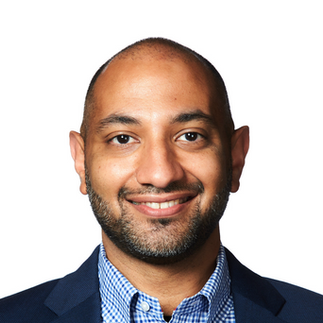

Thu 02 Oct
|ONLINE LIVE EVENT - Time zones "read more"
Risk Stratification in Oral Precancerous Lesions: Patient Management using AI-Driven Molecular Prognostics
Join us for an expert panel discussion hosted by Proteocyte AI on overcoming the challenge of assessing cancer risk in oral precancerous lesions. Discover how their innovations are revolutionizing early detection and treatment.
Time & Location
02 Oct 2025, 16:00 – 17:30 GMT-7
ONLINE LIVE EVENT - Time zones "read more"
About the event
EVENT RECORDING NOW AVAILABLE:

Oral cancer affects 450,000 people each year worldwide, with a 5-year mortality rate of approximately 50%, predominantly due to late diagnosis. Late-stage cancers are more costly and difficult to treat. In this context, clinicians face a persistent challenge in accurately assessing cancer risk in patients with oral potentially malignant disorders (OPMDs).
The standard of care for OPMD risk assessment remains dysplasia grading by histopathology. However, this method has significant limitations, including intra- and inter-observer variability and substantial overlap between grades, undermining its utility as a reliable prognostic tool. These challenges have led to a widespread recognition of the urgent need for more effective and objective prognostic biomarkers.
The Proteocyte AI Solution: Revolutionizing Oral Cancer Risk Stratification
Proteocyte AI offers a groundbreaking solution with Straticyte™, a clinically validated prognostic test designed to objectively assess the risk of progression from OPMDs to invasive oral cancer. Utilizing advanced AI-driven analysis of S100A7 protein biomarkers and digital pathology, Straticyte™ delivers a personalized 5-year risk score with 97% sensitivity and negative predictive value—far outperforming traditional methods.
This innovative tool is easily integrated into clinical workflows, utilizing existing biopsy tissue and providing actionable, objective data that empowers clinicians to make more accurate, data-driven decisions. With Straticyte™, you can now offer your patients a more precise risk assessment, enabling earlier detection of high-risk lesions and tailored treatment plans. This not only improves clinical confidence but also empowers you to make timely decisions—reducing unnecessary interventions, minimizing over-treatment, and ultimately improving patient outcomes.
By identifying high-risk lesions early, Straticyte™ enhances your ability to intervene before cancer progresses to a more advanced, harder-to-treat stage. This empowers you to do more for your patients, ensuring that they receive the most appropriate care at the right time, leading to better outcomes and a reduced burden of late-stage oral cancer.
A New Era in Oral Cancer Care
Straticyte™ represents a significant advancement in oral cancer risk stratification, enabling a more precise, objective approach to patient care. It’s a powerful tool that not only improves clinical practice but also supports better patient outcomes by reducing the high morbidity, mortality, and costs associated with delayed oral cancer diagnoses.
Join us to learn how this innovative solution can elevate your clinical practice and transform the way you approach oral cancer risk assessment, so you can do more for your patients and give them the best possible care.As dentists and oral surgeons, we face a persistent challenge in accurately assessing cancer risk in patients with oral potentially malignant disorders (OPMDs). Traditional dysplasia grading remains subjective and limited, often leading to uncertainty in clinical decision-making. This uncertainty can result in either over-treatment or under-treatment of high-risk lesions, with significant implications for patient outcomes.
Join us to learn how this innovative solution can elevate your clinical practice and transform the way you approach oral cancer risk assessment, so you can do more for your patients and give them the best possible care.
MODERATORS:
Sabine Girod, MD DDS PHD, Professor (em.) OMFS, Stanford University
Maria Troulis, DDS MSc FACS, Professor OMFS, Harvard Medical School, Boston
Anastasyia Qiumby, MD, DDS, Head & Neck Oncology and Microvascular Reconstruction Surgeon, Good Samaritan Medical Center, West Palm Beach, Florida
PANELISTS:
Anthony Morlandt MD, DDS, FACS. is a fellowship-trained head and neck cancer surgeon and board-certified oral and maxillofacial surgeon. He is Director of Oral Oncology at UAB and Vice Chairman of Oral and Maxillofacial Surgery. Dr. Morlandt also directs the head and neck oncology fellowship at UAB and serves as U.S. Chief Medical Officer for Proteocyte AI. His research focuses on prognostic biomarkers in oral cancer progression, with over 50 publications. He is a Fellow of the American College of Surgeons and the American Association of Craniomaxillofacial Surgeons.
Paras B. Patel DDS is a board certified oral and maxillofacial pathologist, who obtained his dental degree from Howard University College of Dentistry in 2011. After graduation, he practiced general dentistry for a few years in the Lubbock area with the Community Health Center of Lubbock, as their staff dentist on the mobile dental unit. In 2014, he began his residency in oral and maxillofacial pathology at TAMU (Baylor) School of Dentistry. Upon completion of his residency, he took a position at the college of dentistry as a full-time faculty member, and after 5 years in academia, Dr. Patel transitioned into private practice and helped establish the Center for Oral Pathology, where he continues his clinical practice. He also had the opportunity to continue his practice of surgical pathology in conjunction with ProPath and helped establish the division of oral and maxillofacial pathology, where he currently serves as director. Dr. Patel also stays active in clinical research involving oral potentially malignant disorders and oral cancer and is also the current US laboratory director for Proteocyte AI.
Waleed Zaid, DDS, MSc, FRCD(c), FACS earned his Doctor of Dental Surgery from Ajman University and completed his Oral and Maxillofacial Surgery residency at McGill University. He holds an MSc in head and neck oncology and a fellowship in head and neck oncology and microvascular reconstruction from Boston Medical Center. Dr. Zaid is a professor at Louisiana State University Health Science Center, focusing on Head and Neck Oncology and microvascular reconstruction. He is a Diplomate of the American Board of Oral and Maxillofacial Surgery and serves as chief of Oral and Maxillofacial Surgery at Our Lady of The Lake Regional Medical Center. He is also the fellowship director for Head and Neck Oncology & Microvascular Reconstruction. Additionally, Dr. Zaid completed a surgical leadership program at Harvard Medical School and has published widely in peer-reviewed journals.
LEARNING OBJECTIVES:
Understand the Limitations of Traditional Methods
Discuss the challenges and limitations of current risk assessment techniques, such as subjective dysplasia grading, in evaluating oral potentially malignant disorders (OPMDs).
Explore the Role of AI in Oral Cancer Risk Stratification
Learn how AI-driven technologies, such as Proteocyte AI’s Straticyte™, can enhance the accuracy and objectivity of cancer risk assessment in OPMDs.
Examine the Science Behind Straticyte™
Understand the mechanisms behind Straticyte™’s use of S100A7 protein biomarker staining and AI-driven cytomorphometric analysis to generate personalized 5-year risk scores.
Evaluate the Clinical Impact of Straticyte™
Assess how Straticyte™ improves clinical decision-making by providing actionable, quantifiable insights into the risk of progression from OPMDs to invasive oral cancer.
Integrate Advanced Diagnostics into Clinical Practice
Gain insights into how Straticyte™ can be seamlessly incorporated into existing clinical workflows, enhancing efficiency and reducing unnecessary interventions.
Discuss the Broader Impact on Patient Outcomes and Healthcare Costs
Analyze the potential benefits of using Straticyte™ in reducing morbidity, mortality, and the financial burden associated with late-stage oral cancer diagnoses.
TARGET AUDIENCE
Oral Surgeons: Specialists in oral surgery managing OPMDs and oral cancer diagnoses.
Head and Neck Surgeons: Surgeons focusing on cancer treatment within the head and neck region.
Oral Pathologists: Professionals diagnosing oral diseases through biopsy analysis.
Oncologists (Oral/Head and Neck Cancer): Oncologists treating oral and head/neck cancer patients.
Healthcare Administrators and Clinical Leaders: Leaders improving clinical efficiency and patient outcomes.
Researchers in Oral Oncology and Diagnostic Technology: Researchers focused on oral cancer detection and predictive biomarkers.
Medical Educators and Trainers: Educators incorporating advanced diagnostic tools into cancer care curricula.
ONLINE LIVE EVENT (Free of Charge)
San Francisco: Thursday, October 2, 2025 at 4:00 pm
Mexico City: Thursday, October 2, 2025 at 5:00 pm
New York: Thursday, October 2, 2025 at 7:00 pm
Rio de Janeiro: Thursday, October 2, 2025 at 8:00 pm
London: Friday, October 3, 2025 at 12:00 midnight
Berlin: Friday, October 3, 2025 at 1:00 am
Johannesburg: Friday, October 3, 2025 at 1:00 am
Cairo: Friday, October 3, 2025 at 2:00 am
Dubai: Friday, October 3, 2025 at 3:00 am
Delhi: Friday, October 3, 2025 at 4:30 am
Manila: Friday, October 3, 2025 at 7:00 am
Sydney: Friday, October 3, 2025 at 9:00 am
LANGUAGE: The event language is english.
DISCLAIMER: This is a sponsored event by Proteocyte AI. Please note that this event does not offer Continuing Medical Education (CME) credits. The views and opinions expressed during the session are those of the speakers and do not necessarily reflect the official policy or position of the organizing company. Participants are encouraged to apply their own professional judgment when integrating any information presented into clinical practice. The event organizers and sponsors are not responsible for any outcomes resulting from the use of the discussed content.
Please be aware that the email and name of participants in this event only will be shared with Proteocyte AI.





